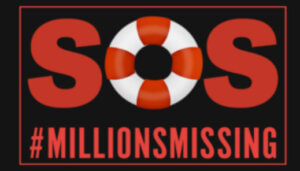Note: This is a two-part article in our series on education in ME/CFS. Part 1 covered UpToDate, the University of North Texas, Michigan State University, and the University of Nebraska; Part 2 covers the University of California–San Francisco, the University of North Carolina, and other best sellers.
To read Part I of this article, click here. To read the first article in this series, Top Medical Schools Teach Little About CFS, click here.
A few medical textbooks provide sufficient information about ME/CFS, but this is not enough to make up for the dozens of others with incorrect or missing information.
Two books available at the University of California-San Francisco’s (UCSF) bookstore devote a chapter to ME/CFS. Mandell, Douglas, and Bennett’s Principles and Practices of Infectious Diseases lists the alternate names myalgic encephalomyelitis, chronic mononucleosis, and chronic fatigue and immune dysfunction syndrome (CFIDS). The text states that women are three to seven more times likely to have ME/CFS and suggests treating with medication to relieve symptoms, with corrections of poor sleep hygiene, and with cognitive behavioral therapy (CBT) and graded exercise therapy (GET). A discussion of the history of ME/CFS, role of various body systems in ME/CFS, and abnormal blood test and MRI findings rounds out the chapter.
The same author who wrote that chapter wrote another about CFS in Clinical Infectious Disease. New information here includes more coverage of types of medications to prescribe to relieve pain and insomnia, the positive results of a rituximab trial, and a recommendation to protect patients from expensive so-called remedies sold online.
Another UCSF book is Conn’s Current Therapy 2016. It states in its first sentences about CFS that patients truly suffer and aren’t malingerers or hypochondriacs and describes the Institute of Medicine report that proposed the name systemic exertion intolerance disease and its diagnostic criteria. In its treatment section, the book advises managing pain, sleep disturbance, and depression; considering CBT; and emphasizing GET but with goals set low to avoid worsening symptoms; and considering safe complementary therapies.
A few other UCSF bookstore holdings touch on CFS. Tarascon Primary Care Pocketbook, Professional Guide to Pathophysiology, The Washington Manual of Rheumatology Subspecialty Consult, Symptom to Diagnosis, and Pocket Primary Care mention CFS once or twice without depth. Pocket Primary Care is also Amazon’s number three best seller in the internal medicine, family and general practice, and clinical diseases categories. Primer on the Rheumatic Diseases adds that stressors have been associated with the development of CFS.
At the University of North Carolina School of Medicine, two out of 12 required books for Fall 2016 refer to CFS. Review of Medical Microbiology and Immunology says it’s a diagnosis of exclusion without providing diagnostic criteria, notes treatment is of symptoms only, and gives the alternate name CFIDS. The other book is Symptom to Diagnosis.
Step Up to Medicine, Amazon’s best-selling family practice book, mentions CFS once. One of Saunders/Elsevier’s best sellers, 1000 Questions and Answers from Kumar & Clark’s Clinical Medicine, claims CFS patients lack “definite pathological features” (p. 280).
Out at least 80 reviewed textbooks, not one mentioned pediatric ME/CFS. Only two mentioned the name myalgic encephalomyelitis.
It seems physicians are better off learning about ME/CFS from patients and ME/CFS specialists than their textbooks.
This June saw the formation of the London Med Ed Workgroup at the Invest in ME conference, whose stated goals are to “create effective vehicles for improving current medical information on ME/CFS; improve the dissemination and exchange of medical information”; and to “develop educational materials building on existing tools and relevant literature.”
We can only hope that this new initiative will help take action to guide textbook authors, professors, and new clinicians in their understanding of a complex illness.
Jaime Seltzer made contributions to this article.
#MEAction would like to thank Darla N. for her investigative reporting in this series! Read the stories in order by clicking on the links below:
1) Top Medical Schools Teach Little about ME/CFS
2) Medical Textbooks Earn a Failing Grade in ME/CFS – 1 of 2
3) Medical Textbooks Earn a Failing Grade in ME/CFS – 2 of 2




